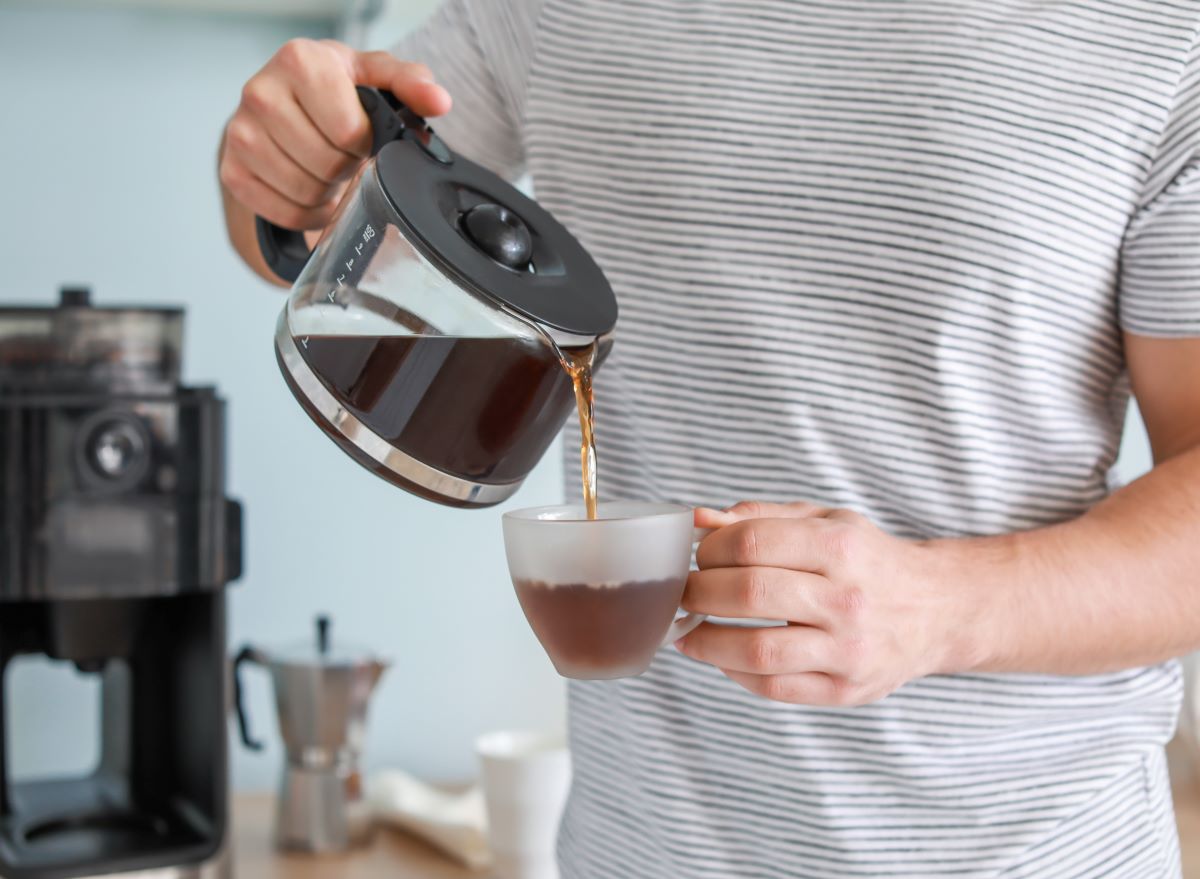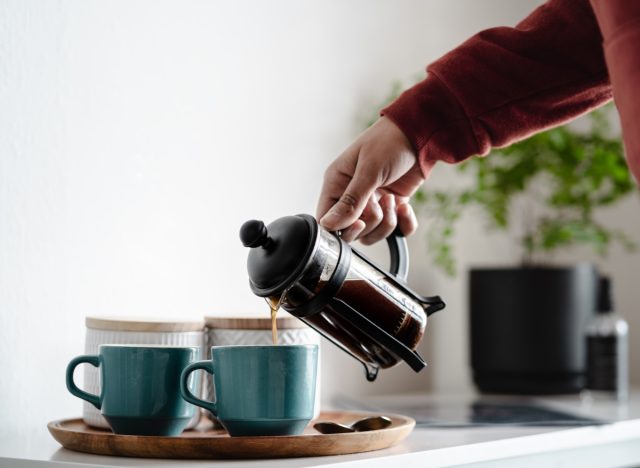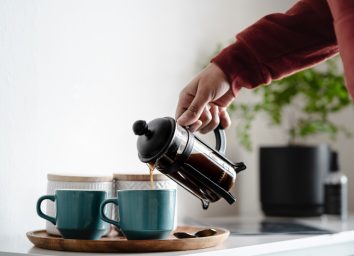What Coffee Does to Your Blood Pressure, Says Science

Coffee is surprisingly beneficial for your health in more ways than one. It contains polyphenols (powerful antioxidants that ward off disease in the body), can improve your gut health, and even helps you live longer. However, while a cup of morning java can positively improve your overall health, there are a few caveats to consider—like what coffee does to your blood pressure.
Now it's important to note that coffee isn't the only thing to be concerned about, but consuming caffeine in general. According to the Mayo Clinic, consuming caffeine can cause a short yet dramatic increase in blood pressure. Although the connecting reason between the two is still unclear, some researchers think caffeine can block a hormone that keeps the arteries widened, resulting in higher numbers.

Johns Hopkins Medicine says that if your blood pressure increases by 5 to 10 points 30 minutes after caffeine, it may be beneficial to cut back. Especially for those who have a history of high blood pressure already.
However, while some regular caffeine consumers will have higher cases of blood pressure, not all do. In other cases, caffeine consumption does not have a long-term effect on blood pressure, making it perfectly fine to consume. Researchers conclude that this is likely due to caffeine tolerance over time if you are habitually drinking it.
An 8-ounce cup of coffee contains 100 milligrams of caffeine, and the recommended daily limit of caffeine is 400 milligrams per day—aka 28 ounces of regular black coffee. Experts warn drinking more than this amount is not recommended due to the effects on blood pressure as well as anxiety, insomnia, and digestive issues.
If your blood pressure levels tend to be higher than normal, it's best to talk to a doctor about caffeine intake and if they suggest limiting your daily cups of coffee—or if it's time to switch to decaf.








